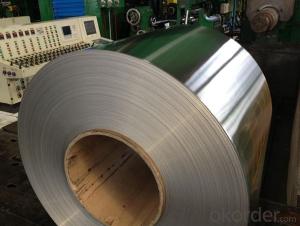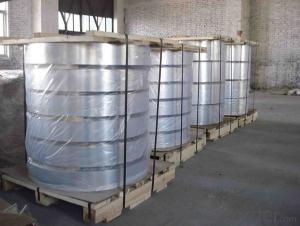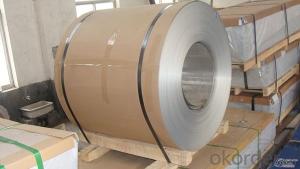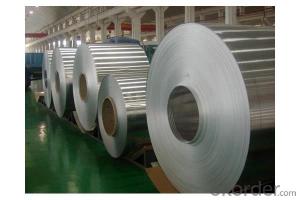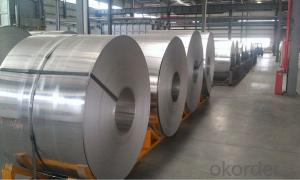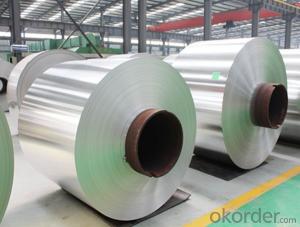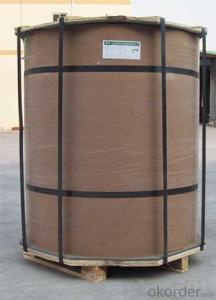Coated Aluminum Coil for Curtain Wall - Mill Finish Aluminum Coil 1xxx 3xxx 5xxx
- Loading Port:
- Shanghai
- Payment Terms:
- TT OR LC
- Min Order Qty:
- 5 m.t.
- Supply Capability:
- 1000 m.t./month
OKorder Service Pledge
OKorder Financial Service
You Might Also Like
Specification
Mill Finish Aluminum Coil for Curtain Wall 1XXX 3XXX 5XXX
1.Structure of Mill Finish Aluminum Coil for Curtain Wall 1XXX 3XXX 5XXX
Aluminum Sheets are strengthened and cut from raw materials with different alloys, such as AA5005, AA5052, etc. They are easy for processing in different shapes, good in intensity and can be quickly installed. Aluminium Sheets for Energy Saving Curtain Walls are good in energy saving, weather resistance, fire resistance, easy for maintenance and with many colors.
Aluminium Sheets for Energy Saving Curtain Walls are widely used in construction of metal walls, metal ceilings, car decoration, advertizing panels, etc.
2.Main Features of Mill Finish Aluminum Coil for Curtain Wall 1XXX 3XXX 5XXX
•High intensity
•Easy to be processed and shaped
•Weather resistance
•Anti-pollution & environment protection
3. Mill Finish Aluminum Coil for Curtain Wall 1XXX 3XXX 5XXX Images
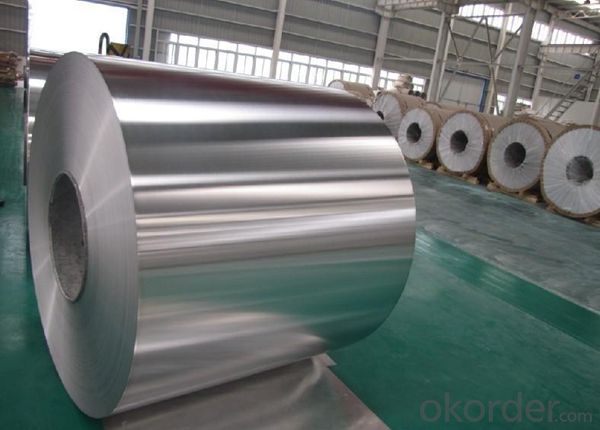
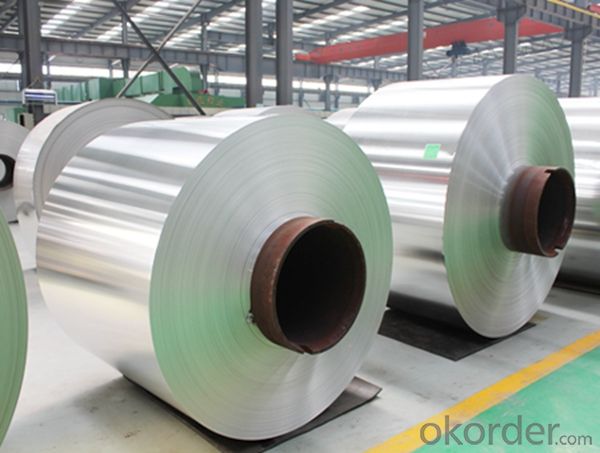
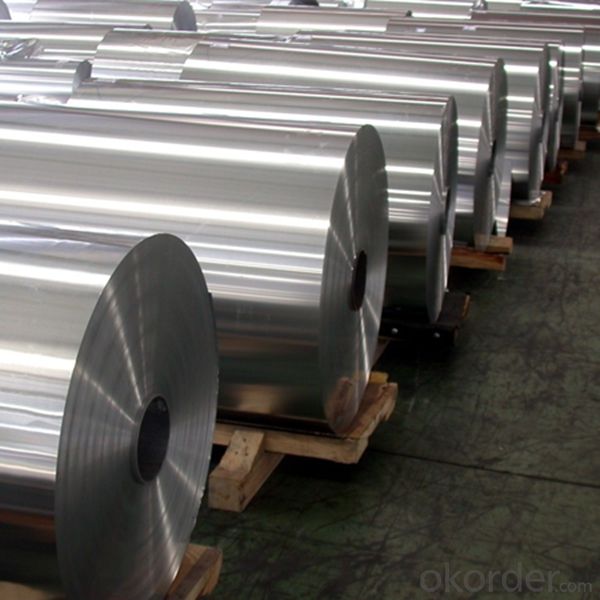
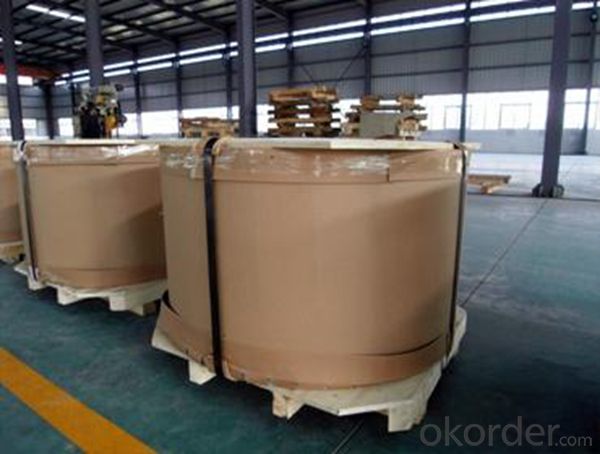
4.Specification of Mill Finish Aluminum Coil for Curtain Wall 1XXX 3XXX 5XXX
Alloy Number | AA5XXX 1XXX 3XXX |
Temper | H12, H14, H16, H18, H22, H24, H26, H32, HO, F |
Thickness | 0.1mm – 500mm |
Width | 10mm- 2200mm |
Standard | GB/T3880-2006, ASTM, ISO, EU standard |
5.FAQ of Mill Finish Aluminum Coil for Curtain Wall 1XXX 3XXX 5XXX
A.What about inspections to guarantee quality?
For each order for Aluminum Sheets with Mill Finished Surface AA5XXX, we will arrange strict inspection for raw materials, inspection during production and inspection for finished goods.
With requirement of customers, we also can arrange the third party inspection.
B.What about delivery?
We will put order for Aluminum Sheets with Mill Finished Surface AA5XXX in production schedule after order gets confirmed against copy of TT or L/C. Normally it takes about one month for production. Exact shipment schedule is different based on different sizes and quantity.
C.What is the MOQ?
5 tons for each size.
D. Where have you exported aluminium sheets?
We have exported aluminum sheets to many countries. Main markets include South East Asia, Middle East, North America, South America, etc.
- Q: How do aluminum coils contribute to reduced material waste?
- Aluminum coils contribute to reduced material waste in several ways. Firstly, aluminum is a highly recyclable material, meaning that it can be melted down and reused multiple times without losing its properties. This recyclability factor alone contributes to reducing material waste as it prevents the need for new aluminum extraction and production. Additionally, aluminum coils are often used in industries where precision and efficiency are crucial, such as in the manufacturing of automobiles, HVAC systems, and electrical equipment. These coils can be easily customized to meet specific requirements, minimizing the need for excess material and reducing waste. Furthermore, aluminum coils offer high strength-to-weight ratio, meaning that they can be manufactured using less material while still maintaining the desired strength and durability. This lightweight characteristic contributes to reduced material waste as it allows for more efficient transportation and installation processes, resulting in lower fuel consumption and less environmental impact. Moreover, aluminum coils can be designed for longer lifespan and improved corrosion resistance. This durability factor helps to minimize the frequency of replacement, reducing material waste over time. Additionally, the long lifespan of aluminum coils makes them an attractive choice for sustainable construction practices, further contributing to reduced waste in the long run. Overall, the use of aluminum coils in various industries not only promotes recycling and reusability but also enables efficient customization, lightweight construction, enhanced durability, and extended lifespan. These factors collectively contribute to reducing material waste and making aluminum coils an environmentally-friendly choice.
- Q: Is it possible to recycle aluminum coils?
- <p>Yes, aluminum coil can be recycled. Recycling aluminum is a highly efficient and environmentally friendly process. It requires only 5% of the energy needed to produce new aluminum from raw materials. Recycled aluminum coils can be used to manufacture new aluminum products, reducing waste and conserving resources. The recycling process typically involves melting the aluminum, which can then be reshaped into new coils or other forms. This makes aluminum one of the most recycled materials in the world.</p>
- Q: How are aluminum coils protected against dust and dirt during storage?
- Aluminum coils are protected against dust and dirt during storage through various measures to ensure their quality and prevent any potential damage. One common method is to wrap the coils securely with a protective covering, such as plastic or polyethylene sheets, to create a barrier against dust and dirt particles. This covering is usually tightly sealed to prevent any contaminants from entering. In addition to the wrapping, other precautions are taken to minimize the risk of dust and dirt accumulation. Storage areas are often kept clean and free from debris to reduce the likelihood of contaminants settling on the coils. Regular cleaning and maintenance of the storage space are necessary to maintain a dust-free environment. Moreover, proper ventilation and air filtration systems are employed in storage facilities to control airborne particles and maintain a clean atmosphere. These systems help to reduce the amount of dust and dirt that can settle on the coils. It is also crucial to handle the aluminum coils with care during transportation and storage to avoid unnecessary exposure to dust and dirt. Employing proper handling equipment and techniques, such as using clean gloves and avoiding dragging the coils on the ground, can prevent the accumulation of contaminants. By implementing these protective measures, aluminum coils can be stored safely and securely, ensuring their quality remains intact and preventing any potential issues caused by dust and dirt accumulation.
- Q: What are the common packaging options for aluminum coils?
- Aluminum coils can be packaged using various methods to ensure their safe transportation and storage. Options include wooden pallets, steel or aluminum cradles, and cardboard or plastic wrapping. These packaging solutions are specifically designed to protect the coils and maintain their quality. Wooden pallets serve as a stable base for stacking the coils, making them easy to handle. Steel or aluminum cradles are employed to secure the coils and prevent any movement or potential damage during transit. To offer an additional layer of protection against moisture and other environmental factors, the coils may also be wrapped in cardboard or plastic. The aluminum industry frequently utilizes these packaging options to safeguard the coils until they reach their final destination, preserving their integrity and quality throughout the journey.
- Q: What is the elongation of aluminum coils?
- The elongation of aluminum coils refers to the amount of stretching or deformation that can occur in the material before it breaks or becomes permanently damaged. It is a measure of the ductility or ability of aluminum to withstand tensile forces without fracturing.
- Q: What is the acceptable range of temperatures for aluminum coils in terms of their functionality and durability?
- <p>The temperature range for aluminum coils can vary depending on the specific application and alloy type. Generally, aluminum coils can operate effectively within a range of -200掳F to 500掳F (-129掳C to 260掳C). For most industrial applications, the working temperature is between -40掳F to 300掳F (-40掳C to 150掳C). However, it's important to consult the manufacturer's specifications for the exact temperature limits of a particular aluminum coil, as these can differ based on the alloy and intended use.</p>
- Q: Is it possible to utilize aluminum coils for crafting artistic installations or distinctive creations?
- <p>Yes, aluminum coils can be used to create art installations and other unique creations. Their malleability, durability, and lightweight nature make them ideal for sculptural works. Artists can bend, shape, and weld aluminum coils into various forms, offering a wide range of design possibilities. The material's reflective surface can also add visual interest, especially when used in installations that interact with light and shadow. Additionally, aluminum's resistance to corrosion makes it suitable for outdoor art pieces, ensuring longevity and low maintenance.</p>
- Q: What are some common applications for aluminum coils?
- Due to their exceptional qualities and versatility, aluminum coils find widespread use in various industries. They are particularly utilized in: 1. Construction: The construction industry extensively employs aluminum coils for roofing, cladding, and insulation purposes. Their lightweight nature makes them ideal for reducing overall structure weight and providing excellent corrosion resistance. 2. Transportation: The automotive and aerospace industries widely utilize aluminum coils. In the automotive sector, they are employed in the manufacturing of heat exchangers, radiators, and condensers, as well as lightweight body panels, improving fuel efficiency. In the aerospace industry, aluminum coils are used to manufacture aircraft parts with a high strength-to-weight ratio, such as wings, fuselages, and engine components. 3. Electrical and Electronics: The electrical and electronics industry employs aluminum coils in various applications. They are commonly used in the production of transformers, motors, and generators due to their excellent conductivity and lightweight nature. Aluminum coils also find use in electrical cable manufacturing, as they offer good electrical conductivity and resistance to corrosion. 4. Packaging: The packaging industry extensively uses aluminum coils due to their excellent barrier properties. They are commonly employed for packaging food and beverages, pharmaceuticals, and other consumer products. Aluminum coils provide an impermeable barrier against moisture, oxygen, and light, ensuring the preservation and protection of packaged goods. 5. Heating, Ventilation, and Air Conditioning (HVAC): Aluminum coils are widely integrated into HVAC systems for their excellent heat transfer properties. They are commonly found in air conditioning systems, heat pumps, and refrigeration units. Aluminum coils facilitate efficient heat exchange, ensuring effective cooling and heating processes. In conclusion, aluminum coils are widely employed in the construction, transportation, electrical and electronics, packaging, and HVAC industries. Their lightweight nature, corrosion resistance, excellent conductivity, and heat transfer properties make them highly versatile and valuable in these sectors.
- Q: How are aluminum coils packaged for transportation?
- Aluminum coils are typically packaged for transportation by first being tightly wound and then securely strapped with steel bands. They are often placed on pallets and covered with protective materials such as plastic or cardboard to prevent damage during transit. Additionally, the coils may be loaded into containers or onto flatbed trucks, ensuring proper handling and stability throughout the transportation process.
- Q: What are the potential health hazards associated with the use of old aluminum coils?
- <p>Using old aluminum coils can pose health risks due to potential leaching of aluminum into food or beverages. Long-term exposure to aluminum may lead to cognitive impairments and neurological issues. Additionally, old coils may have accumulated dirt, bacteria, or other contaminants that could cause infections or digestive problems. It's important to regularly inspect and replace aluminum cookware to ensure safety.</p>
Send your message to us
Coated Aluminum Coil for Curtain Wall - Mill Finish Aluminum Coil 1xxx 3xxx 5xxx
- Loading Port:
- Shanghai
- Payment Terms:
- TT OR LC
- Min Order Qty:
- 5 m.t.
- Supply Capability:
- 1000 m.t./month
OKorder Service Pledge
OKorder Financial Service
Similar products
Hot products
Hot Searches
Related keywords
